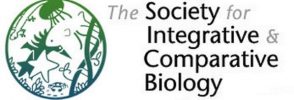Contents
Message from the Chair
Laura Zimmerman, chair.dede@sicb.org
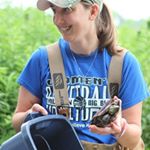
Every year, I look forward to SICB. It’s a chance for one week out of the year, to just focus on science. I never fail to walk away from SICB inspired and refreshed, as I learn about new techniques and ideas, forge new collaborations, and catch up with friends and colleagues I only see once a year. Our conference is a chance to forget about those other commitments of my job that often suck away my time and leave little chance to just read journals or spend time at my lab bench. SICB reminds me why I got into this career in the first place – the joy of doing and learning about science. This year, more than ever, I needed that. So kudos to everyone who worked so hard to make sure the important aspects of SICB were recreated virtually!
Having talks on demand allowed us to venture into novel territories, workshops taught us new skills, and live discussion panels gave us a chance to hash out innovative ideas. It took a lot of work behind the scenes, and I want to give a particular thanks to our DEDE executive board, especially to our outgoing officers: Program Officer Cynthia Downs, Secretary Ken Field, and Student/Postdoc rep Ashley Love. Ashley once again organized a wonderful Lunch with an Eco-immunologist event. We appreciate your service to SICB! We also welcome our new officers, Program Officer Laura Mydlarz, Secretary Patricia Lopes, Chair-elect James Adelman, and Student/Postdoc rep Jennifer Houtz!
Thank you to all who participated, worked as a judge, helped organize, and presented at SICB this year. It has been a challenging year for so many reasons, and so we appreciate the time that everyone has taken out of their overwhelmingly busy schedules to make sure that the annual SICB conference was once again a huge success.
Message from the Program Officer
Laura D Mydlarz, dpo.dede@sicb.org
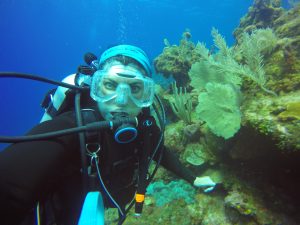
Even though our annual meeting looked very different this year, the virtual meeting was a huge success for DEDE! DEDE hosted 54 talks across 5 sessions and 26 posters across 3 sessions. This year we continued our annual tradition of hosting an oral presentation session dedicated to the DEDE Best Student Oral Presentation Competition. The 8 finalists were chosen from the abstracts submitted. In addition, ten students competed in the DEDE Best Student Poster. The winners of both contests are announced in the note from the DEDE Secretary. A special thanks to those who volunteered to judge student presentations; your participation and enthusiasm for judging our students makes this a seamless process and we couldn’t do it without you!
DEDE co-sponsored 4 symposia: 1) Biology’s best friend: Bridging disciplinary gaps to advance canine science, organized by Caleb Bryca and Ana Jimenez, 2) The integrative biology of pigment organelles, organized by Florent Figon, Jérôme Casas, and Leila Deravi, 3) Biology Beyond the Classroom: Experiential Learning through Authentic Research, Design, and Community Engagement, organized by Alexandria Hansen, Lisa Whitenack, Patrice Connors, and Hayley Lanier, and 4) Blinded by the Light: Effects of Light Pollution across Diverse Natural Systems, organized by Meredith Kernbach, Stephen M. Ferguson, Valentina Alaasam, Colleen Miller, and Clint Francis. Keep an eye out for all the amazing papers associated with the presented talks that will come out in Integrative and Comparative Biology this year.
DEDE also represented extremely well in the Audience Choice awards. Vania Assis won one of the audience choice awards for her talk “Ectoparasites impact on stress and immune response in Florida invasive cane toads (Rhinella marina)” in the Immunity session! Overall this was a great meeting for ecoimmunology and disease ecology topics as well as DEDE members!
As we look forward to SICB 2022 in Phoenix, AZ (I think we all hope to be in person so we can catch up and socialize again!), it is shaping up to be another outstanding meeting. I’m excited to announce that DEDE will be sponsoring 3 symposia:
- Ecoimmunology: what unconventional organisms tell us after two decades. Organizers: Vania Assis and Stefanny Monteiro
- Open source solutions in experimental design. Organizers: Kirk Onthank and Richelle Tanner
- DNA metabarcoding across disciplines: sequencing our way to greater understanding across scales of biological organization. Organizers: Anna Forsman, Michelle Gaither and Anna Savage
To ensure that DEDE continues to grow and thrive, it is important that DEDE members continue to host ecoimmune/disease-related symposia. We are now soliciting proposals for symposia for the 2023 meeting in Austin, TX. Symposia are eligible for NSF funding, and symposia that have complementary sessions and/or associated workshops, and that invite speakers from diverse institutions across a range of career stages, are most likely to receive NSF funding. If you have an idea, email me at dpo.dede@sicb.org or the SICB program officer (Jake Socha) at programofficer@sicb.org for more details or information. We also have sample NSF proposals that we can share. I highly encourage senior graduate students and post-docs to submit proposals, as a symposium is an excellent way to network with researchers in your field, to highlight a research area you think is exciting, and to help shape future programming at SICB.
Thank you for your ongoing participation and support of DEDE events, and thanks again to all who volunteered to judge student presentations. I sincerely hope to see you all in person in Phoenix, AZ!
Message from the Secretary
Patricia C. Lopes, secretary.dede@sicb.org
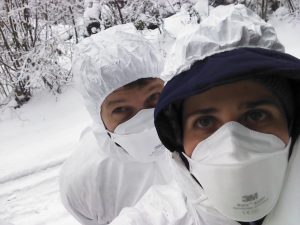
There’s nothing like a terrible situation (a pandemic) to highlight the importance of the type of work we all do in the Division of Ecoimmunology and Disease Ecology! The pandemic also made it even more evident to me how I appreciate my live interactions with everyone at the SICB annual meetings! Even though it was different, the virtual SICB meeting was a huge success and enabled people from a much larger number of locations to participate and feel included. I still hope to see you all in Phoenix, AZ, next year!
I wanted to highlight and congratulate our Best Student Presentation winners:
Jennifer Houtz, at Cornell University, won the Best Oral Presentation, “Microbial diversity and flexibility are associated with lay date in a wild songbird.”
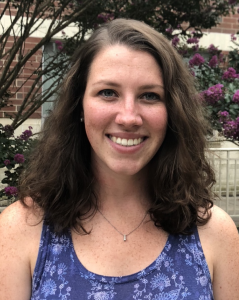
Korin Jones, at Virginia Tech, won the Best Poster Presentation, “Exposing frog embryos to bacterial isolates: Colonization order impacts structure of the tadpole microbiome.”
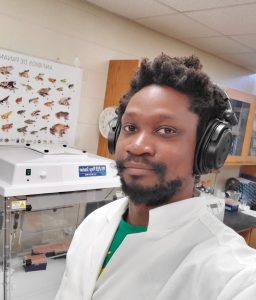
Also, a big thanks to Laura Mydlarz for organizing the judging, and to all of those who served as judges.
We want to make DEDE and SICB continuously more inclusive. Please follow DEDE (@SICBDEDE) and SICB (@SICB_) on Twitter and Facebook, so you can learn about opportunities associated with the division and with the society. For instance, we used Twitter this year to call for candidates to stand for DEDE positions. You can also contact me directly (secretary.dede@sicb.org) to find out what opportunities are coming up within DEDE and different ways in which you can become involved with the division. We would like to thank all candidates for this year’s elections. Please exercise your right to vote: all SICB members are eligible regardless of career stage.
Message from the Student/Postdoctoral Affairs Committee Representative
Ashley Love, acl017@uark.edu
We had a great turnout for our “Meet an Ecoimmunologist/Disease Ecologist” event with meet-ups between student/post-docs and faculty working in Ecoimmunology and Disease Ecology. Thank you to everyone that participated this year! Stay tuned for information about similar events for SICB 2022.
This year the SICB Student/Postdoctoral Affairs Committee (SPDAC) sponsored a virtual workshop on “Transferable Skills in Academia and Non-Academia”. This workshop consisted of a 30-minute panel discussion with 10 experts from a variety of fields and then 45-minutes of breakout-room discussions between attendees and the 10 panelists. SPDAC members also created numerous “how to” brochures that were available at the virtual SPDAC booth. These “how to” brochures include (but are not limited to) information on grant writing, getting into graduate school, making a teaching/diversity/research statement, and improving science communication skills. Brochures will continue to be available at future meetings. We would also like to welcome Jennifer Houtz as the new DEDE student/postdoc representative!
Finally, if you don’t already, please follow us on Twitter (@SICBDEDE) and Facebook. Throughout the year, please tag us in your posts and tweets sharing papers, grants, post-doc or student opportunities, and other news.
Candidate for Program Officer-Elect
Daniel Becker
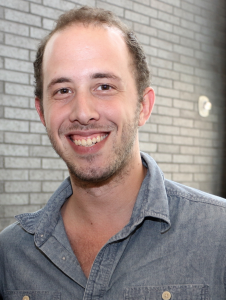
Current Position: Assistant Professor, University of Oklahoma
Education: B.A. Bard College (2010), Ph.D. University of Georgia (2017)
Professional Experience: Assistant Professor, University of Oklahoma (2020-present); Postdoctoral Fellow, Indiana University (2018-2020); Postdoctoral Researcher, Montana State University (2017-2018)
SICB Activities: Member of DEDE (2014-present); Student/Postdoc Representative, DEDE (2015-2018); Symposium Co-Chair (2019); DEDE Session Chair (2018-2020); Judge for Best Student Presentation (2018-2020); Integrative & Comparative Biology reviewer (2019)
Other Memberships: Ecological Society of America
Research Interests: My research explores the drivers of infection dynamics in wildlife hosts of zoonotic pathogens, especially in highly mobile taxa like bats and birds. My work combines spatial and temporal field studies with immunology, mathematical modeling, and data mining to understand how pathogens spread within and between host populations, particularly in the context of environmental change. Ongoing projects in my lab group include how agricultural intensification affects immunity and infection in Neotropical bats as well as the interactions between urbanization, migration, and epidemiology in North American songbirds and bats.
Goals Statements: I would be honored to serve as Program Officer for DEDE. SICB was my first society conference and has since been my home base for ecoimmunology and disease ecology research. DEDE is especially important for our field as it bridges the within-host and between-host processes that are often studied in isolation from one another. I’ve enjoyed the range of symposia covered by DEDE thus far and would welcome the opportunity to further expand our division’s influence. As Program Officer, I would recruit symposia organizers that represent a range of approaches and perspectives to ecoimmunology and disease ecology. It will be equally critical to include organizers and speakers from diverse backgrounds to improve representation in our field. By working with the Student/Postdoc Representative, I will also ensure opportunity for undergraduates, graduate students, and postdocs to network with organizers and speakers.
Candidates for Secretary-Elect
Sarah A. Knutie
Current Position: Assistant Professor of Ecology and Evolutionary Biology, University of Connecticut
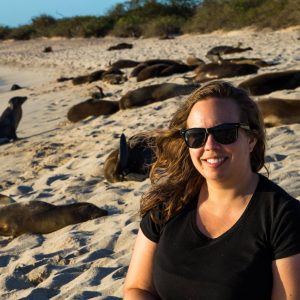
Education: B.S. University of Minnesota, Twin Cities (2006); M.S. University of Tulsa (2009); Ph.D. University of Utah (2014)
Professional Experience: Assistant Professor, Department of Ecology and Evolutionary Biology, University of Connecticut (2017-Present); Post-doctoral Researcher, Department of Integrative Biology, University of South Florida (2014-2017)
SICB activities: Member of DEDE (2014-Present); DEDE Best Student Presentation Judge (2015, 2017, 2019); DEDE Best Student Presentation Organizer (2017); Lunch with an Ecoimmunologist Mentor (2019); SICB Broadening Participation Mentor (2019); Symposium participant (New Orleans, LA, 2017); ICB reviewer (2017)
Other Memberships: American Ornithological Society, American Society of Parasitologists, Ecological Society of America
Research Interests: The research in my lab spans both fundamental and applied ideas in disease ecology and ecoimmunology. We use field- and captive-based studies, combined with advanced molecular techniques, to understand the evolutionary ecology of host defenses against parasites, especially in response to environmental change. Currently, my lab has three main foci, which include studying: 1) the effect of urbanization on host defense strategies against invasive avian vampire flies, 2) how local ecology affects host resistance and tolerance to ectoparasites in a box-nesting bird system, and 3) the effects of overwintering ecology on frog immune-microbiota-parasite interactions. https://www.knutielab.com
Goals Statement: I would be proud to serve as the SICB DEDE secretary because this division has been my main societal home since its conception. I believe that the DEDE represents an ever growing home for disease ecologists and ecoimmunologists at every level of the profession. As a division leader, I will be committed to effectively communicating DEDE news and content to its members and beyond. For example, I will use my experience and expertise in social media communication to help promote DEDE to expand membership. I am also deeply committed to training students at every level and will also continue to support student participation and activities, which includes support to increase diversity, equity, and inclusion.
George Brusch IV
Current Position: Assistant Professor, Department of Integrative Biology, Oklahoma State University.
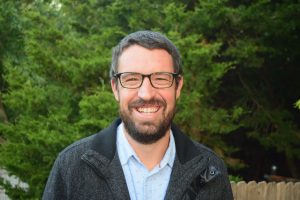
Education: B.S., Cal Poly – San Luis Obispo (2014); Ph.D. Arizona State University (2019).
Professional Experience: Postdoc, Environmental Physiology, Centre National de la Recherche Scientifique (2019-20); Assistant Professor, Oklahoma State University (2020-present).
SICB Activities: SICB member since 2015, member of DEDE, DCPB; Mentor for SICB Broadening Participation Program (2018)
Other Memberships: International Society of Developmental and Comparative Immunology, Society for the Advancement of Chicanos/Hispanics and Native Americans in Science
Research Interests: Research in the NET lab (Nutritional, Energetic, and Temperature physiology) investigates how animals respond to resource limitations. Our current focus is primarily on water limitations. We examine how water balance affects physiological functions such as immunocompetence, reproduction, and metabolism, as well as how animals mitigate potential negative effects. We use multiple levels of biological organization (communities, organisms, systems, cellular and molecular mechanisms) and a combination of field studies and manipulative laboratory experiments to understand the physiological implications of and adaptive responses to water limitation.
Goals Statement: It would be an honor to serve as Secretary for DEDE which has been my home since I attended my first SICB meeting in 2015. As a first-generation college student who was inspired to become a biologist by the student-centered experiences I obtained at SICB meetings, I recognize how important society and divisional involvement is to academic success. My professional experiences have taught me the tremendous value of effectively communicating to a wide audience through newsletters, meetings, workshops, outreach events, and division-wide social events. My central focus as a graduate student, postdoc, and faculty member has been giving back by mentoring and supporting students from a variety of backgrounds in the classroom, laboratory, and at society meetings. I plan to work with everyone in the division to connect with students from all backgrounds and encourage their development while growing our membership. I am especially excited to advocate for DEI as Secretary; I believe that each component is essential to our mission. By promoting diversity we bring unique perspectives, through equity we ensure that everyone has what they need to succeed, and an inclusive environment celebrates, values, and respects a myriad of cultural perspectives.
